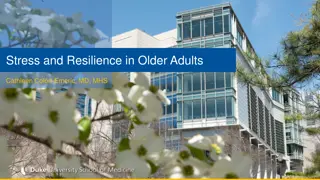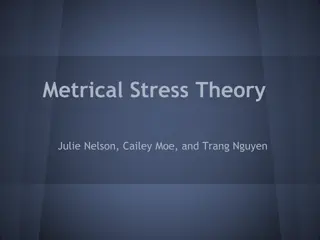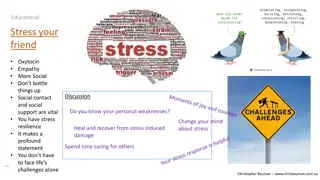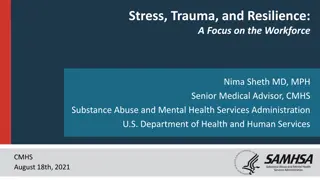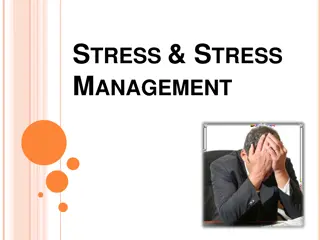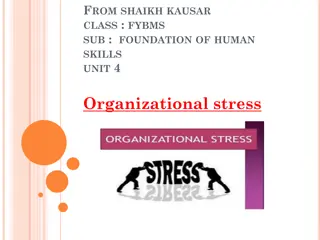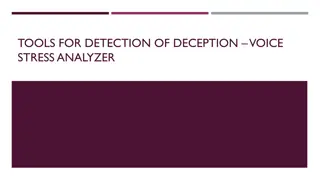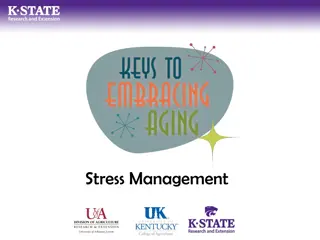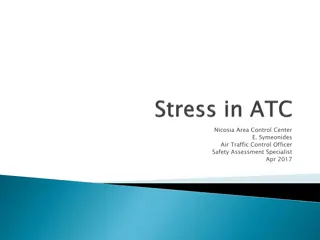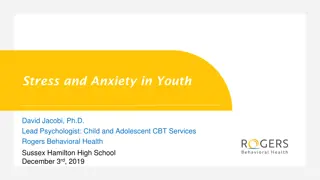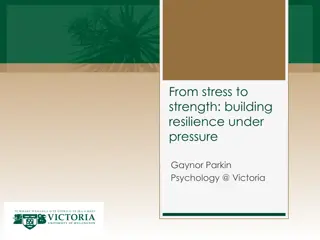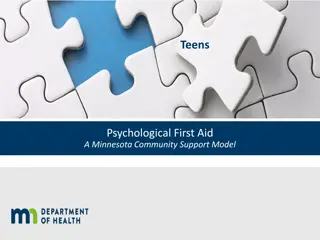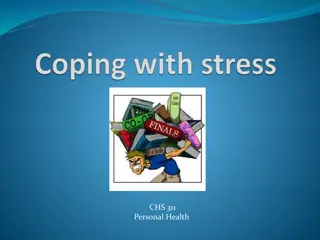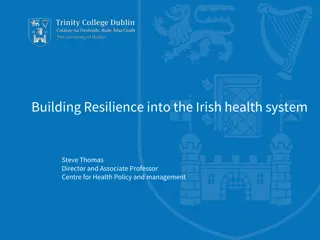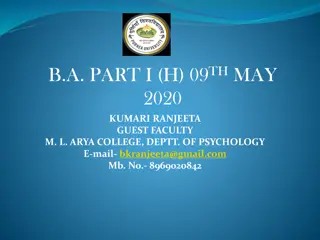Building Resilience and Dealing with Stress: A University Guide
Explore the concept of resilience, signs of stress, and practical strategies to manage stress while navigating university life. Reflect on challenges, create supportive connections, and improve personal resilience through actionable plans. Remember, resilience is about bouncing back, working through challenges, and embracing positive change.
Download Presentation

Please find below an Image/Link to download the presentation.
The content on the website is provided AS IS for your information and personal use only. It may not be sold, licensed, or shared on other websites without obtaining consent from the author. Download presentation by click this link. If you encounter any issues during the download, it is possible that the publisher has removed the file from their server.
E N D
Presentation Transcript
Bounce Back Building your resilience Dealing with stress
Objectives Reflect on starting university and the impact Recognise symptoms of stress Introduce the stress bucket Creating networks and supportive connections Understanding boundaries with personal relationships Develop your own action plan to improve personal resilience
What is Resilience? The ability to: Bounce back from adversity Work through challenges Overcome obstacles Fall down 7 times get up 8 Resilient people tend to: - Be more open to new ideas - Assume the best rather than the worst of people - Find opportunity and risk fascinating - Embrace positive change - Energised in a crisis rather than overrun - Attract other people to collaborate with them
Signs of Stress Cognitive Physical Stress Emotional Behaviour
When things get stressful - Try the 3 step breathing space The 3 step breathing space practice https://youtu.be/Eq_z- B8JtTQ
A trip down Memory Lane Think back to when you just started university. What things tested your resilience? What have been the challenges of university life so far? What did you do to get through it?
Creating Connections Disability advice Friends/Family Student Liaison Officers Money Advice Groups, clubs, activities Employment You Job Shop & Careers Wellbeing University Internet/resources
Energy levels and stress Over or under-eating Excess Alcohol and use of drugs (prescription and otherwise) Seclusion and inactivity Lack of sleep Keep a record so you recognise the triggers and know how to deal with them
Tools for your toolbox Stress bucket 3 Step breathing space Creating connections of support Identification of negative habits Circle of Control
Further Support Student Wellbeing Team 0113 812 8507 studentwellbeing@leedsbeckett.ac.uk Employability 0113 812 5995 Student Money & Advice 0113 812 5593 Disability Advice 0113 812 5831 Skills for learning To arrange your first appointment with us, please complete our online registration form via MyHub it just takes a few minutes.



